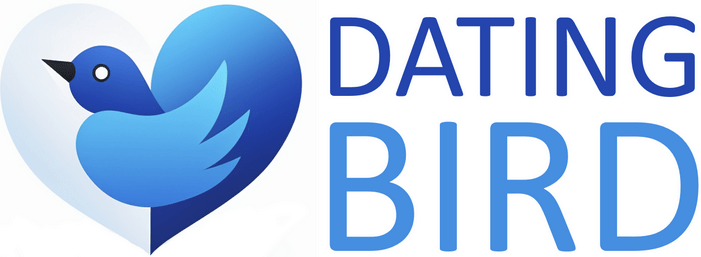Welcome to the unpredictable world of online dating, where trends like ghosting are as common as swiping right. Ever been in the middle of a promising conversation and then - poof - they disappear without a trace? That's ghosting for you, a cruel dating trend that's becoming all too familiar. But don't worry, we're here to help you navigate these murky waters. This article won't just help you spot ghosting, but also arm you with the know-how to identify other nasty dating trends. After all, knowledge is power, right?


Summary (TL;DR)
- Ghosting, the act of suddenly cutting off all communication without explanation, is a common and emotionally damaging trend in online dating.
- Other cruel dating trends include breadcrumbing, benching, zombieing, and catfishing, all of which play with individuals' emotions and can lead to psychological distress.
- These trends have a significant impact on mental health, causing feelings of rejection, anxiety, and low self-esteem. It's crucial to learn coping mechanisms and when to seek professional help.
- Identifying these trends early can protect individuals from emotional harm. Recognising red flags, setting boundaries, and maintaining online safety are key to a positive dating experience.
- Building resilience against these cruel dating trends involves understanding one's worth, maintaining a positive outlook, and not letting these experiences define one's self-esteem.
Our recommendations
IDEAL FOR QUICK, SPONTAENOUS MEETS
Trusted platform for meaningful relationships
- Large worldwide user base increasing variety of potential matches
- Diverse features catering to different interaction styles
- Trustful and well known operator
Table of contents

Understanding the Ghosting Phenomenon in Online Dating
"Ghosting" in the dating world isn't about spooky apparitions, but it can be just as hair-raising. It's a cruel trend that's become all too common in the digital dating scene. But what exactly is ghosting?
Well, imagine you're chatting with a potential partner, everything seems to be going well, and then… silence. That person, who you had been building a connection with, has vanished without a trace. No goodbye, no explanation, nada. Sounds like a scene from a horror movie, right? Well, welcome to the world of ghosting!
But why do people ghost? The reasons can be as varied as the people doing the ghosting. Some might do it to avoid confrontation or difficult conversations. Others might just be thoughtless, not considering the impact of their actions. Whatever the reason, the effect on the person on the receiving end can be devastating.
"Ghosting can leave you feeling confused, hurt, and with a nasty case of the 'what-ifs'."
But don't despair, my friend, it's not a paranormal activity you're powerless against. If you've been ghosted, it's important to remember that it's not a reflection of your worth. It's okay to feel hurt, but don't let it consume you. Take a step back, practice some self-care, and remember, everyone gets ghosted at some point.
And if you want to avoid being ghosted, here's a tip: Communication is key. Be clear about your expectations from the start and encourage your potential partner to do the same. It might not make you ghost-proof, but it can help you spot the red flags early on.
So there you have it, a little insight into the ghosting phenomenon. But ghosting isn't the only cruel trend lurking in the online dating world… But more on that later.
Other Cruel Dating Trends to Look Out For
Hold onto your teacups, folks. We've already navigated the murky waters of Ghosting, but alas, the online dating sea is teeming with other not-so-friendly creatures. Let's dive in and shine a light on the other cruel dating trends you need to be aware of. Ready? Let's go!
First up is Breadcrumbing. Think of this as the Hansel and Gretel of dating trends, but instead of a trail of breadcrumbs leading you home, they're just leading you on. It's a tricky one to spot, but we'll arm you with the knowledge to see it coming.
Next, we have Benching. Imagine you're a top football player, but instead of being on the field, you're kept on the bench. In the dating world, it's just as frustrating. You're kept in the wings, waiting for your time in the spotlight that never comes.
Then we have Zombieing. You remember that Ghost who disappeared without a trace? Well, they're back from the dead, popping up in your life again like an unwanted rerun of The Walking Dead.
Finally, there's Catfishing. This is the ultimate deception, where someone lures you in with a fake profile. They reel you in with their charm and charisma, only for you to find out they're not the person they claimed to be.
These trends, along with Ghosting, are some of the most common cruel dating trends out there. They can leave you feeling confused, hurt, and questioning the whole dating scene. But fear not, dear reader. Knowledge is power, and by knowing what to look out for, you're already one step ahead.
Now, let's take a closer look at Breadcrumbing, shall we? Be ready to spot those crumbs and don't get lost in the forest of online dating!
"In the world of online dating, being aware of the cruel dating trends is your first line of defence. Stay informed, stay alert, and remember, you deserve someone who treats you with respect."
Breadcrumbing: The Art of Leading On
Breadcrumbing, my dear friends, is a cruel dating trend that's as old as the hills but has found new life in the digital dating world. It's the art of leading someone on by dropping 'breadcrumbs' of interest - flirty texts, liking social media posts, or even the odd date here or there, but never committing to anything substantial.
Ever had someone pop up in your inbox with a flirty message, sparking hope, only to vanish again? That's breadcrumbing, folks. It's like being led down a garden path that leads to… well, nowhere, really.
Why do people breadcrumb? Well, it could be for an ego boost, to feel desired, or simply because they like keeping their options open. But let's be clear: it's not about you, it's about them.
The effects of breadcrumbing can be quite harsh. You might feel confused, frustrated, and even start questioning your self-worth. Sound familiar? Well, you're not alone. Just like ghosting, breadcrumbing can leave you feeling disoriented and questioning the entire dating scene.
Now, how do you handle breadcrumbing? Here's a thought: demand clarity. If you feel you're being breadcrumbed, it's okay to ask the person where you stand. Remember, you're worth more than a few breadcrumbs.
"Don't settle for breadcrumbs when you deserve the whole loaf!"
Also, keep an eye out for patterns. If someone is always "too busy" to make plans, or their texts are sporadic and non-committal, you might be dealing with a breadcrumber.
Finally, remember to take care of yourself. It's okay to step back, reassess, and focus on self-care. After all, your well-being should always come first.
Okay, breadcrumbing is a wrap. But don't go yet - up next, we'll dive into another cruel dating trend: Benching. It's a game of waiting, but who really has time for that? Let's find out together!
Benching: The Game of Waiting
Welcome to the world of "Benching". If you thought ghosting was brutal, wait until you hear about this one. It's like being a player in a game, but you're left on the bench, watching the game unfold without you. Sounds about as fun as a tooth extraction, right?
Benching is a dating trend where a person you're seeing keeps you in their rotation of potential partners but doesn't commit to a relationship. Think of it as being put on the back burner while they explore their other options. You're not quite ghosted, but you're definitely not centre stage either.
Now, you might be thinking, "How can I tell if I've been benched?" Well, here's the tricky part. Unlike ghosting, where the signs are as clear as day, benching can be a bit more subtle. You'll still receive texts and calls, but they'll be sporadic. Plans to meet may be made, only to be cancelled last minute. Sound familiar? If so, you might just be warming the bench.
So, what does benching do to you? Well, it can lead to feelings of confusion, frustration, and a serious dent in your self-esteem. It's like being in dating limbo, and let's be honest, nobody wants to be there.
But don't worry, we've got your back. How do you handle benching? First off, recognise it for what it is. If you feel like you're always waiting for that person to make time for you, you're probably being benched. Secondly, communicate your feelings. If they're genuinely interested, they'll make an effort. If not, well, you're better off without them. Remember, you're the star player in your own life, not a benchwarmer in someone else's.
So there you have it - the ins and outs of benching. Next up, we'll delve into the world of "Zombieing: The Return of the Ghost". But don't worry, we've got the survival guide you need to navigate these spooky dating trends. Stay tuned!
Zombieing: The Return of the Ghost
Just when you thought the coast was clear from the ghosting phenomenon, here comes another dating trend that's sure to send shivers down your spine. Welcome to the world of Zombieing. No, it's not about dating the undead, but it can feel just as eerie.
Zombieing, my dear readers, is when a person who ghosted you suddenly reappears in your life, acting as though nothing happened. It's like they've risen from the dating dead, thus the term. You might find them sliding back into your DMs or liking your social media posts out of the blue. It's as if they've been reanimated, but remember, they're the same person who ghosted you in the first place.
The effects of Zombieing can be quite disconcerting. It's like a bad sequel to a horror movie you didn't enjoy in the first place. It can leave you feeling confused, frustrated, and questioning your self-worth. But here's the kicker: you don't have to play the victim in this dating horror story.
So, how do you handle this Zombie apocalypse in your love life? First, recognise it for what it is. If the person ghosted you once, there's a good chance they might do it again. Next, trust your gut. If their return leaves you feeling uneasy, it's okay to keep the door closed. Remember, in the dating world, your feelings matter.
"Just because a ghost from your past has returned, doesn't mean you have to let them haunt your present."
Lastly, maintain your boundaries and communicate openly. If you do decide to rekindle the connection, be clear about your expectations and don't be afraid to ask them about their ghosting episode. After all, if they've returned from the dating dead, they owe you an explanation, right?
So, there you have it. Zombieing decoded. Armed with this knowledge, you're now better equipped to navigate these spooky dating trends. But remember, the online dating world has more in store. Up next, we dive into the deceptive waters of “Catfishing: The Ultimate Deception”. But fear not, we're here to help you swim, not sink. Stay safe out there!
Catfishing: The Ultimate Deception
Welcome to the shadowy world of catfishing, where the fish aren't the ones being baited. Imagine this: you meet someone on your favourite dating app. They're charming, share your interests, and there's that spark. You're hooked. But then, you discover they're not who they claimed to be. You've been catfished.
Catfishing, in the dating scene, is when someone creates a fake online persona to lure unsuspecting individuals into a relationship. These deceptive individuals can masterfully manipulate lonely singles, spinning stories as convincingly as a seasoned novelist.
So, how can you avoid being the catch of the day? Here are some tips to help you spot a catfish:
- Overly perfect profiles: If their profile looks like it's straight out of a Hollywood movie, be wary. Nobody's perfect, not even in the online dating world.
- Avoidance of video calls: Refusing to video chat is a classic catfish move. They might have a million excuses, but the truth is they don't want you to see their real face.
- Inconsistent stories: If their backstory changes more often than a chameleon changes colours, you might be dealing with a catfish.
The effects of catfishing can be devastating, from stolen identities to broken hearts. It can leave you feeling betrayed, humiliated, and wary of future online interactions.
But don't despair! Here's how to handle being catfished:
- Trust your instincts: If something feels off, it probably is.
- Do your research: A quick Google search can reveal a lot about your potential partner.
- Report and block: If you're certain you've been catfished, report the profile to the dating app and block the person.
In the end, remember, you're wiser now. You'll spot those beige flags from a mile away next time.
As we navigate these deceptive waters of the dating world, it's important to recognise the psychological impact of these cruel dating trends. But hey, chin up! We're here to help you cope and build resilience. So, shall we dive into the deep end?

The Psychological Impact of Cruel Dating Trends
You've heard of ghosting, right? It's that cruel dating trend where a potential partner suddenly cuts off all communication, leaving you in a state of confusion and distress. But have you ever stopped to think about the psychological impact of such behaviour?
Ghosting can wreak havoc on one's mental health, causing feelings of rejection, self-doubt, and anxiety. It's like a rug being pulled out from under your feet - one moment you're having a great time, and the next, you're left wondering what you did wrong.
Now, imagine being on the receiving end of other cruel dating trends like breadcrumbing or benching. Sounds pretty bleak, doesn't it? These experiences can lead to emotional stress, affecting your self-esteem and overall well-being. But you're not alone, and it's not your fault.
"The psychological impact of cruel dating trends can be profound, but remember, it's a reflection of the other person's character, not your worth."
So, what can you do when you find yourself a victim of these cruel dating trends? For starters, acknowledging your feelings is key. It's okay to feel hurt, confused, or angry. Suppressing these emotions will only prolong the healing process.
Next, developing healthy coping mechanisms can be a game-changer. This might mean talking about your experiences with trusted friends, journaling your thoughts, or engaging in activities that boost your mood.
However, if the emotional stress becomes overwhelming, don't hesitate to seek professional help. A therapist or counsellor can provide you with strategies to navigate these turbulent waters and come out stronger on the other side.
Finally, building resilience is crucial. Just like a muscle, resilience can be developed over time. It's about understanding that rejection is a part of the dating process and not a measure of your self-worth.
So, take a deep breath. Remember, you are more than your dating experiences.
In the next section, we'll delve deeper into recognising emotional stress and explore healthy coping mechanisms. So, let's continue this journey together, shall we?
Coping with Emotional Stress from Online Dating
Online dating, while exciting, can sometimes feel like you're on an emotional rollercoaster. One minute, you're on cloud nine, chatting with a potential partner who seems like the perfect match. The next, you're plunged into the depths of despair when they ghost you. Sounds familiar?
Recognising Emotional Stress
First off, let's understand that it's okay to feel stressed or upset by these experiences. It's a natural response. But how can you tell when it's getting too much? You might notice changes in your mood or behaviour. Maybe you're losing sleep or your appetite has changed. Perhaps you're feeling anxious or unusually low. These are all signs that the emotional stress of online dating may be taking a toll on you.
Healthy Coping Mechanisms
So, what can you do about it? Here's where healthy coping mechanisms come into play. Firstly, take a break. It's okay to step away from the dating apps for a while. Engage in activities you enjoy. Reading a book, going for a walk, or even just binge-watching your favourite series can give you a much-needed breather.
Secondly, reach out to your support network. Talk to friends or family about your experiences. Sharing your feelings can be very therapeutic.
Lastly, and most importantly, practice self-care. This could be anything from regular exercise to meditation or even just a pampering session at home. Remember, you're the star of your own life, so it's essential to take care of yourself!
When to Seek Professional Help
But what if these coping mechanisms aren't enough? If you're feeling persistently low or anxious, it might be time to seek professional help. A mental health professional can provide you with the tools and strategies to manage your emotional stress. There's no shame in reaching out. Your mental health is just as important as your physical health.
"Remember, you are more than your dating experiences. You are valuable and deserving of love and respect."
So, don't let the ghosting and other cruel dating trends get you down. You're stronger than you think, and with the right tools, you can navigate the online dating world with confidence.
Next up, we'll explore how to build resilience in the face of these cruel dating trends. Because let's face it, in the world of online dating, a little resilience goes a long way. Stay with us, the journey continues…
Building Resilience in the Face of Cruel Dating Trends
Now, let's talk resilience, shall we? Not as thrilling as a James Bond flick, but equally important, especially when navigating the murky waters of online dating. So, what's resilience? It's not about wearing a superhero cape, but it's about bouncing back in the face of adversity, and let's be real, ghosting can feel like a villainous act.
Ever heard of the phrase, "What doesn't kill you makes you stronger"? Well, it's not just a catchy Kelly Clarkson tune. It's a mantra that captures the essence of resilience. Building resilience is about more than just surviving the cruel dating trends; it's about learning, growing, and thriving despite them.
Now, how do you build resilience in the face of ghosting and other online dating challenges? First things first: remember to take care of yourself, physically and emotionally. Self-care isn't just about bubble baths and chocolate (although those can help!). It's about acknowledging your feelings, giving yourself permission to feel hurt, and then consciously deciding to move forward.
Next, try to maintain a positive outlook. Easier said than done, right? But here's a tip: try reframing the situation. Instead of seeing ghosting as a personal failure, see it as dodging a bullet. After all, would you really want to be with someone who lacks the basic decency to communicate their feelings?
And lastly, don't forget to lean on your support network. Friends and family can provide comfort, perspective, and a much-needed distraction when the dating scene gets tough.
Remember, resilience isn't built in a day. It's a process, and it's okay to have bad days. But with a little patience and a lot of self-love, you'll find yourself bouncing back from ghosting and other cruel dating trends like a pro.
So, now that we've got resilience in our toolkit, let's move on to creating a safe and positive online dating experience. Because, let's face it, we all deserve a little less drama and a lot more love in our lives, right?
Creating a Safe and Positive Online Dating Experience
With the rise of online dating, it's essential to keep yourself safe while also keeping your spirits high. Who says you can't have your cake and eat it too? Setting boundaries and recognising red flags are vital first steps. Maintaining online safety should also be a top priority. And don't forget about keeping a positive mindset. After all, dating should be fun, shouldn't it?
First things first, let's talk about boundaries. In the dating scene, boundaries act like invisible 'do not cross' lines. They help to ensure that your needs are met and that you feel safe and respected in your interactions. So, how do you set these boundaries? And more importantly, how do you maintain them when you're dealing with potential partners who may not have your best interests at heart?
Remember, it's your dating profile, and you are in control. If someone tries to push past your boundaries, it's perfectly okay to say 'No, thank you' and move on. And hey, if they can't respect your boundaries, they're probably not worth your time anyway, right?
Next on the agenda, red flags. These are warning signs that something might be amiss. Maybe your potential partner is too controlling, or they're dismissive of your feelings. Or perhaps they're always 'too busy' to make plans. If something doesn't feel right, trust your gut. It's better to be safe than sorry.
Now, let's talk about online safety. Don't share personal information like your home address or financial details. Keep conversations on the dating app until you feel comfortable. And if you plan to meet in real life, choose a public place.
Finally, try to keep a positive mindset. Sure, dating can be tough (ghosting, anyone?), but it can also be a lot of fun. So, keep your head high, your boundaries firm, and your heart open.
"Remember, dating is a journey, not a destination. So, enjoy the ride and keep your safety belt on."
Next up, let's delve a bit deeper into setting boundaries in online dating. Because, let's face it, a date without boundaries is like a ship without a rudder, and nobody wants to be lost at sea, do they? So, anchors aweigh, and let's set sail into the world of online dating boundaries!
Setting Boundaries in Online Dating
Ever heard of the phrase, "Good fences make good neighbours"? Well, the same principle applies to online dating. Setting boundaries is a critical part of any healthy relationship, even more so when you're navigating the choppy waters of the online dating world.
Why are boundaries important? Well, you wouldn't want to go on a road trip without a map, would you? Boundaries are like your personal GPS, guiding you through the dating landscape. They're your line in the sand, clearly defining what you're comfortable with and what's a no-go zone.
Now, how do you set boundaries? It's quite simple, really. Start by understanding your own needs and values. What are you looking for in a potential partner? How much personal information are you comfortable sharing? How quickly do you want the relationship to progress? These are all things to consider when setting your boundaries.
Once you've figured this out, communicate your boundaries clearly in your dating profiles. Be upfront about what you're comfortable with. It's better to scare off a few frogs than to find yourself in an uncomfortable situation.
Remember, it's not just about setting your own boundaries, but also respecting others'. Just as you wouldn't want someone to cross your line in the sand, don't cross theirs. If someone tells you they're not comfortable sharing personal information or meeting in person yet, respect that.
"Your boundaries are like your personal GPS, guiding you through the dating landscape. Don't switch it off."
Now, this might sound like a lot to take in, but don't worry. You've got this! And remember, setting and respecting boundaries is just one part of the online dating puzzle. Next up, we'll be delving into the world of red flags in online dating. Because let's face it, even the best GPS can't help you if you ignore the warning signs, right? So, let's keep our eyes on the road and continue this journey together.
Recognising Red Flags in Online Dating
In the realm of online dating, a red flag isn't just a symbol on a pirate ship. It's a warning sign, a blaring siren that something isn't quite right. So, what are these red flags, and how can you spot them? Buckle up, because we're about to dive in.
Common Red Flags
Let's start with the basics. Picture this: you're scrolling through a potential partner's profile, and everything seems perfect. Too perfect, in fact. Photos that look like they've been ripped from a model's portfolio? A bio that's as polished as Shakespeare's sonnets? These could be signs of a catfish, someone pretending to be someone they're not.
Fast responses might be flattering, but if they're coming in at the speed of light, it could indicate desperation or, worse, a bot. On the other hand, if they're more elusive than a ghost at a seance, going days or weeks without replying, they could be ghosting you.
Trust Your Gut
Trust us when we say, your intuition is your best friend in the dating scene. If something feels off, it probably is. Like when someone's constantly talking about their ex. Or when their tales are as tall as the Shard and just as hard to believe. Or they're always cancelling plans at the last minute. These are all red flags waving in the wind.
Taking Action
So, you've spotted a red flag. What now? Well, as the saying goes, when in doubt, call it out. Politely ask them about it. If their explanation doesn't add up, it might be time to swipe left and move on. Remember, your safety and wellbeing should always come first.
"In the sea of online dating, your intuition is your lighthouse, guiding you away from potential hazards and towards safer shores."
Navigating the online dating world can be as thrilling as a rollercoaster ride, but it's important to stay vigilant and recognise those red flags. It's all part of the journey to find that special someone who respects you and treats you right. Now, let's move on to the next crucial topic - maintaining safety in online dating. Because even in the quest for love, it's better to be safe than sorry, wouldn't you agree?
Maintaining Safety in Online Dating
Remember when dating was all about meeting someone in a coffee shop or a friend's party? Well, those days are long gone, and with the advent of online dating, safety has never been more paramount.
Online safety tips are the new pick-up lines, and protecting personal information is the new first base. But how do you navigate this new dating scene and keep yourself safe from the ghosting and other cruel dating trends? Buckle up, and let's dive in!
First off, guard your personal information like a lioness guards her cubs. Full names, addresses, bank details – these are all a big no-no when sharing details online. You wouldn't hand over your house keys to a stranger, right? So why give them the keys to your life?
Remember, just as you're vetting potential partners, so are the cybercriminals. They're just looking for different qualities, like your credit card number, for instance. So, be smart, and only share what's necessary.
Next on the list, report any abuse or suspicious behaviour immediately. You know that gut feeling you get when something isn't right? Trust it. If someone's harassing you or making you feel uncomfortable, report them. It's as simple as clicking a button.
Platforms are designed with safety in mind and have robust systems in place to deal with these issues. And remember, your actions could help protect others too.
"In the world of online dating, your personal safety is worth more than a thousand sweet nothings."
And there you have it, a few simple tips to keep you safe while you navigate the dating waters. After all, love may be blind, but it doesn't have to be reckless.
Next up, let's look at how we can navigate these cruel dating trends with confidence. Because let's face it, we're all worth more than a ghosting text or a breadcrumb trail. Don't we deserve to find love without having to lose ourselves in the process? Stay tuned, as we delve into this in our conclusion.
Conclusion: Navigating Cruel Dating Trends with Confidence
In conclusion, navigating the modern dating landscape requires an understanding of the prevalent cruel dating trends like ghosting, breadcrumbing, and submarining. These actions, often resulting from a lack of communication and respect, can cause significant emotional distress. Awareness and understanding of these trends are vital in setting healthy boundaries and expectations in relationships. It is essential to advocate for open, honest communication and respect in dating, and to walk away from individuals who exhibit these cruel behaviours. Remember, everyone deserves respect and kindness in their relationships, and recognising these harmful trends is the first step to ensuring that.

FAQ
Question: What is ghosting in the context of online dating?
Question: What are some other cruel dating trends to be aware of?
Question: What is the psychological impact of cruel dating trends like ghosting?
Question: How can I create a safe and positive online dating experience?
Question: What is breadcrumbing and how to handle it?
Question: What is catfishing and how to identify it?
Question: How can I build resilience in the face of cruel dating trends?
Question: What are the common red flags in online dating?
Related articles
Articles with related questions
Further information on terms of this article
Written by:
 Nathan
Nathan stands for quality content. He checks all articles critically and conscientiously.
Nathan is our team skeptic. He puts all tests and reports through their paces.In his opinion, if an article does not contain at least 500 words, it is not well researched.
Nathan
Nathan stands for quality content. He checks all articles critically and conscientiously.
Nathan is our team skeptic. He puts all tests and reports through their paces.In his opinion, if an article does not contain at least 500 words, it is not well researched.


